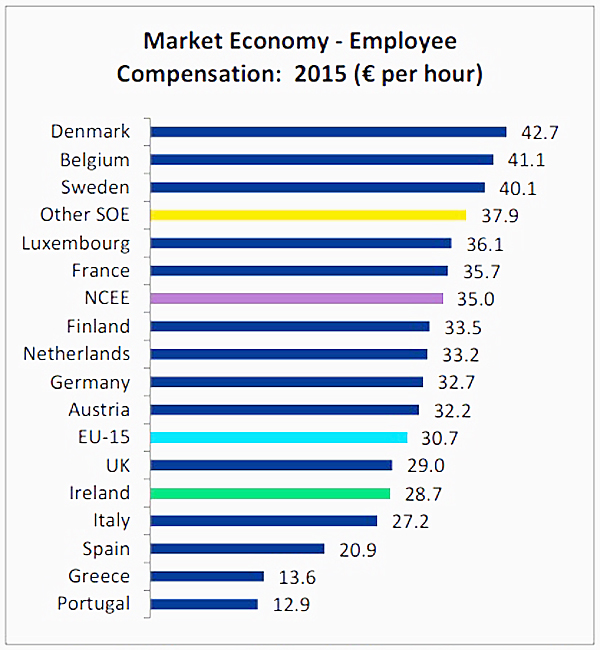Ireland is a low-waged economy in comparison with other EU countries despite having high levels of national income and profits, Unite claimed today.
The trade union today released The Truth About Irish Wages report today, which compared Irish wages in the private sector with those in other EU countries.
“Our research shows that the economic recovery is a myth for thousands of workers who earn less than their counterparts elsewhere in the EU,” said Unite regional secretary Jimmy Kelly.
“Compared to Northern and Central European economies, Irish wages are 18% below average.

“Compared to other small open economies, Irish wages are 24% below average.
“At the same time, wage inequality is high and growing: during the past five years, managers and professionals received an 11% increase in weekly income, while white and blue-collar workers only experienced a 1% increase”.
Jimmy Kelly taking us through The Truth about #IrishWages pic.twitter.com/cP0AukQdlv
— UNITE union Ireland (@UNITE_Union_IRE) June 1, 2016
The report includes a breakdown by economic activity – manufacturing, retail, transport, professional, etc. – as well as additional information on wage growth, wage inequality and wages in the indigenous, Irish-owned sector.
According to Unite’s research, the wages of workers in the traditional low-paid sectors – such as hospitality, retail and wholesale – are falling even further behind EU averages.
Ireland also has the second-highest level of wage inequality in the EU-15, after Portugal, the union claims.
Unite education & politics officer Brendan Ogle said: “Low pay is compounded by low levels of employers’ social insurance, known as the ‘social wage’.
“This means that Irish workers have to pay more to access services such as healthcare than their counterparts elsewhere in the EU, while receiving lower levels of in-work supports. Irish living standards are 15% below the EU-15 average”.
Mr Kelly said the current state of wages has detrimental effects on both the economy and society in general.
“Ireland’s wage deficit is not only bad for the individuals and families directly affected, but also for our economy and society as a whole,” he said.
“ Raising Irish living standards will require a package of measures. In addition to increasing employers’ social insurance to fund improved services and income supports, the wage floor for the low-paid needs to be increased by extending the Joint Labour Committees and progressively raising the Minimum Wage to the Living Wage.
“We also need to increase employee rights, from the right to collective bargaining to improved rights for part-time workers.
“Irish wages are uncompetitively low. This results in reduced domestic demand which, in turn, reduces business performance.
“It also reduces tax revenue which depresses the ability of the state to invest in our economic and social infrastructure.
“Our low wage culture is propelling the Irish economy into a race-to-the-bottom.”
Update 3.19pm: Business group ISME has said that Unite has picked figures to suit its call for higher wages in Ireland.
“The report itself is like a drunk that regards a lamppost more for support than illumination,” said ISME chief Mark Fielding.


